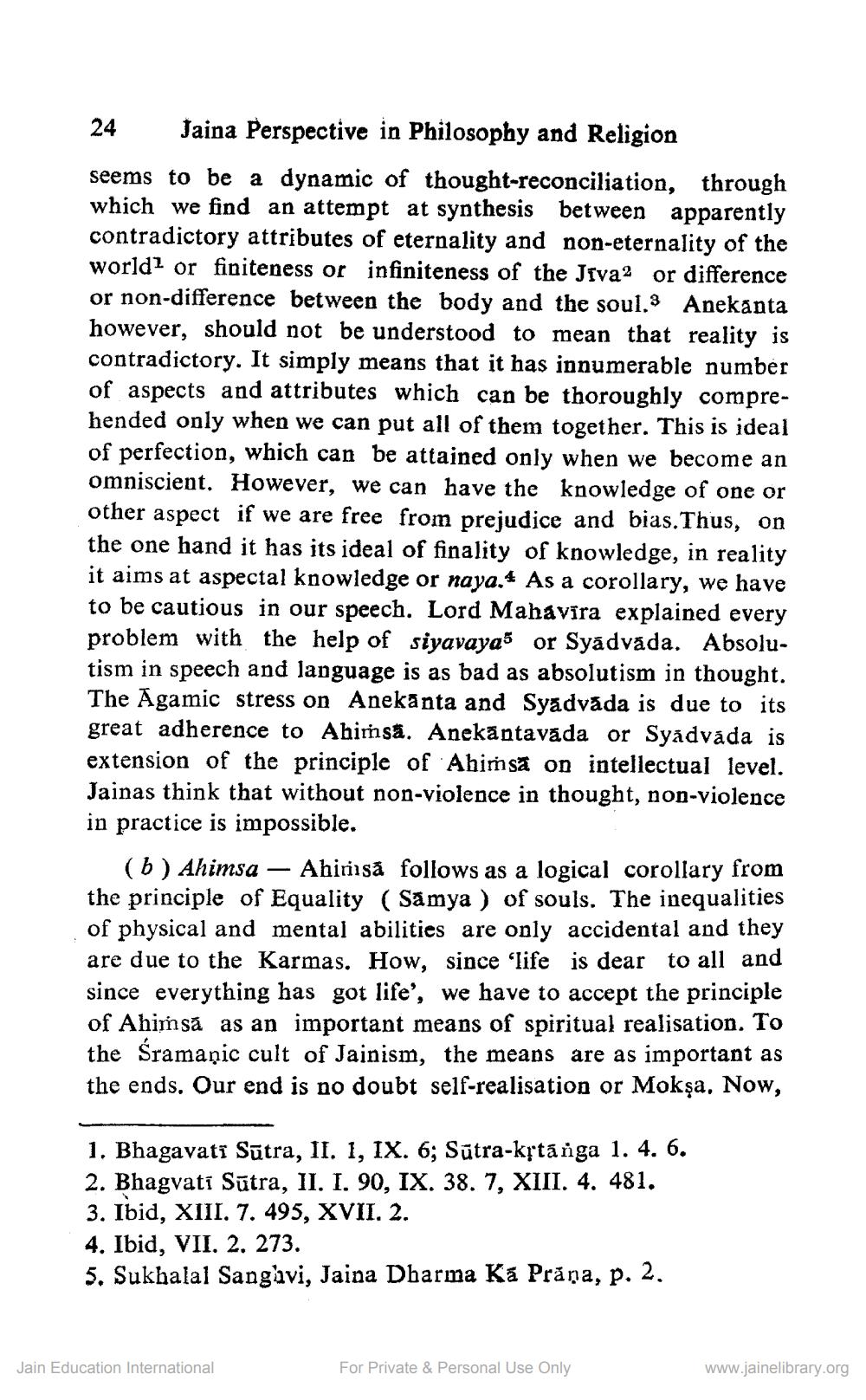________________
24 Jaina Perspective in Philosophy and Religion seems to be a dynamic of thought-reconciliation, through which we find an attempt at synthesis between apparently contradictory attributes of eternality and non-eternality of the world? or finiteness or infiniteness of the Jiva2 or difference or non-difference between the body and the soul.3 Anekanta however, should not be understood to mean that reality is contradictory. It simply means that it has innumerable number of aspects and attributes which can be thoroughly comprehended only when we can put all of them together. This is ideal of perfection, which can be attained only when we become an omniscient. However, we can have the knowledge of one or other aspect if we are free from prejudice and bias. Thus, on the one hand it has its ideal of finality of knowledge, in reality it aims at aspectal knowledge or naya.4 As a corollary, we have to be cautious in our speech. Lord Mahavira explained every problem with the help of siyavaya5 or Syadvada. Absolutism in speech and language is as bad as absolutism in thought. The Agamic stress on Anekanta and Syadváda is due to its great adherence to Ahimsa. Anekāntavada or Syadváda is extension of the principle of Ahimsa on intellectual level. Jainas think that without non-violence in thought, non-violence in practice is impossible.
(b) Ahimsa - Ahirisă follows as a logical corollary from the principle of Equality (Samya ) of souls. The inequalities of physical and mental abilities are only accidental and they are due to the Karmas. How, since 'life is dear to all and since everything has got life', we have to accept the principle of Ahimsă as an important means of spiritual realisation. To the Sramaņic cult of Jainism, the means are as important as the ends. Our end is no doubt self-realisation or Mokşa. Now,
1. Bhagavati Sūtra, II. 1, IX. 6; Sūtra-kstanga 1. 4. 6. 2. Bhagvati Sūtra, II. I. 90, IX. 38. 7, XIII. 4. 481. 3. Ibid, XIII. 7. 495, XVII. 2. 4. Ibid, VII. 2. 273. 5. Sukhalal Sangavi, Jaina Dharma Ká Prána, p. 2.
Jain Education International
For Private & Personal Use Only
www.jainelibrary.org




